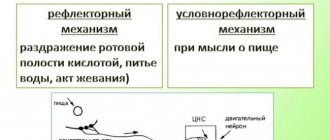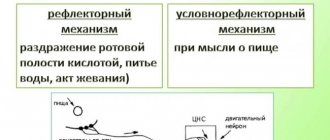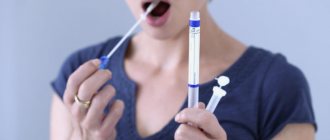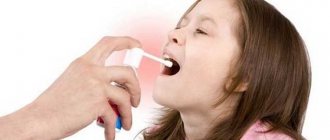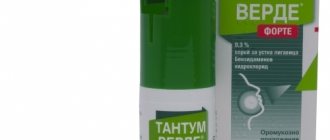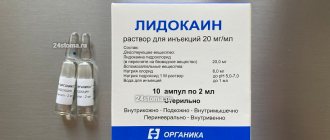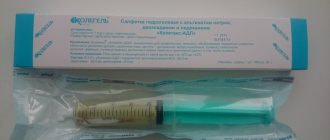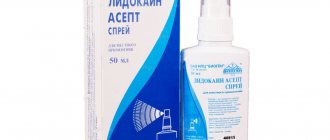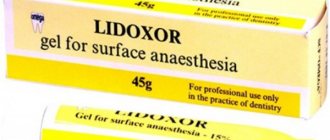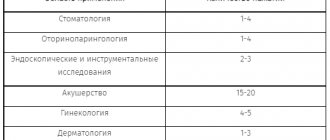Dry mouth is a fairly common problem, affecting 12% of the entire world population, and up to 60% in older age groups [1]. This is not an independent disease, but a symptom of various disorders in the body. Simultaneously with the diagnosis and treatment of the underlying disease, doctors are working to eliminate dryness, for which they can combine two methods: stimulating saliva and using its artificial substitutes. The second approach is covered in detail in this article.
Why are saliva substitutes needed?
Saliva is the secretion produced by the salivary glands. It consists of 99% water, and also contains enzymes for the primary digestion of carbohydrates and lysozyme with antibacterial and wound-healing properties [1].
Saliva performs several diverse functions:
- participation in digestion;
- protection of the oral mucosa from harmful microorganisms;
- remineralization of tooth enamel;
- mechanical cleaning of teeth and mucous membranes;
- formation of a food bolus and stimulation of swallowing [1, 2, 3].
The quality and quantity of saliva plays an important role.
The more calcium and protein it contains for transport into the enamel, the faster the enamel is restored. Yanushevich O. O., chief dentist of Russia, rector of the Moscow State Medical and Dental University named after. A. I. Evdokimova, Corresponding Member of the Russian Academy of Sciences, Doctor of Medical Sciences, Professor, Honored Doctor of the Russian Federation [3]
Thus, insufficient salivation provokes a number of oral problems:
- caries, primarily cervical and tooth roots;
- erosion of tooth enamel;
- periodontal diseases (ligamentous apparatus of the teeth);
- rapid accumulation of plaque;
- candidiasis of the oral mucosa;
- cracks in the tongue and lips;
- angular cheilitis (inflammation of the corners of the mouth);
- difficulty eating and swallowing;
- change in the taste of food;
- difficulties in wearing prostheses [2, 4].
Biochemical analysis of saliva in Moscow
The study identifies metabolites of oral microorganisms (volatile fatty acids):
- oil;
- propionic;
- vinegar
The detection of a total amount of short-chain fatty acids in the oral fluid at a level of 0.8–1.9 mg/g indicates the normal state of the oral microflora.
A decrease or increase in the total amount of short-chain fatty acids indicates a change in the quantity and functional activity of obligate and opportunistic microflora of the oral cavity.
An increase in the relative content of propionic and butyric acids in the qualitative composition of short-chain fatty acids indicates an increased number of populations of anaerobic microorganisms. With a relative content of propionic acid at the level of 0.17–0.185 units. and acetic acid at a level of 0.75–0.78 units. there is an increase in the number of bacteria of the genus Bacteroides; with a butyric acid content of 0.03–0.35 units, acetic acid at a level of 0.6–0.65 units. and propionic acid at a level of 0.09–0.1 units. – bacteria of the genus Clostridium and Fusobacterium; the content of propionic acid is at the level of 0.19–0.21 units, butyric acid at the level of 0.045–0.055 units. and acetic acid at a level of 0.7–0.75 units. indicates an increase in mixed anaerobic flora in the oral cavity.
The content of propionic acid is 18–20%, butyric acid is 0.1–0.12 units. and isoacids at the level of 0.059–0.065 units. indicates an increase in the amount of anaerobic flora with proteolytic and hemolytic activity. The content of acetic acid is at the level of 0.89–0.93 units, propionic acid at the level of 0.055–0.09 units, butyric acid at the level of 0.015–0.025% and isomers of short-chain fatty acids at the level of 0.03–0.038 units. speaks of an increase in microorganisms of the genera E. coli, aerobic streptococci and staphylococci; the acetic acid content is 0.87–0.91 units. and isomers of short-chain fatty acids at a level of 0.07–0.085 units. characteristic of an increase in populations of aerobic microorganisms with proteolytic activity.
Change in relative acid content within 0.05–0.06 units. from normal values indicates minimal changes in the microflora of the oral cavity.
| A- and anaerobic microorganisms1 producing SCFA. | ||
| Gut bacteria | Basic carboxylic acids | Additional acids produced |
| Bifidobacterium (G+), Lactobacillus (G+), (Actinomyces), Ruminococcus (G+) Aerobic flora (strepto-, staphylococci) | Acetic acid | + dairy |
| Intestinal bacteria Main carboxylic acids Additional produced acids Bifidobacterium (G+), Lactobacillus (G+), (Actinomyces), Ruminococcus (G+) Aerobic flora (strepto-, staphylococci) Acetic acid + lactic Veillonella (G-), Propionibacterium (G+), Bacteroides (G-) Arachnia (G+), Anaerovibrio (polar flagella) | Propionic acid | + vinegar |
| Acidaminococcus (G-), Bacteroides (G-), Cloctridium, Eubacterium (G+), Lachnospira (G+), Butyrivibrio (polar flagella), Gemmiger (G-), Coprococcus (G+), Clostridium (G-) Fusobacterium (G- ) Cloctridium difficile (!) | Butyric acid UK, MK, iMK, VK, iVK, iKK | + vinegar without iso-oil |
| Streptococcus (G+), Leptotrichia buccalis (G-) Peptococcus (G-) | Lactic acid | Lactic acid |
| Megasphaera (G-) | Oil, iso-oil, valerian, nylon, iso-valeric, iso-nylon | |
What causes a lack of saliva?
The list of factors that can cause dry mouth is very wide. Possible reasons include:
- pathological processes in the gland itself: inflammation, tumors, stones in the ducts;
- systemic connective tissue diseases: Sjogren's syndrome, lupus erythematosus, rheumatoid polyarthritis;
- diseases of the endocrine system: thyrotoxicosis, diabetes mellitus, hypogonadism, as well as hormonal changes during pregnancy;
- damage to the nervous system: contusion of the base of the brain, tabes of the spinal cord, peripheral damage to the facial nerve;
- diseases of individual organs and systems: renal failure, gastroenterocolitis;
- acute infectious diseases: botulism, typhoid fever;
- viral hepatitis C;
- undergoing a course of radiation therapy or chemotherapy;
- conditions that lead to inhibition of secretion: fear, anxiety, pain, neurosis;
- side effects of certain drugs: antitumor drugs, diuretics, tranquilizers;
- lack of vitamins A, C, B, as well as iron;
- smoking, alcohol and coffee abuse [1, 2].
The doctor should first find out the cause. The exact diagnosis determines how to stimulate salivation and whether it is necessary to prescribe synthetic saliva substitutes.
Medicines to replace saliva
Saliva substitutes commonly available in spray form can be divided into two groups:
- based on mucin - a gel-like protein that provides the drug with the necessary viscosity and surface tension to imitate real saliva;
- based on lactoperoxidase, an enzyme of the salivary glands with antibacterial properties [1].
The solution, like natural saliva, contains mineral salts. Its pH value is also close to natural.
Release form: compact bottles (50–100 ml), which are convenient to carry with you. The spray is used to irrigate the mucous membranes of the oral cavity as needed.
Saliva substitute at home
It’s easy to make artificial saliva yourself using available materials. Its composition is simpler than that of pharmacological drugs, but this remedy will also cope with eliminating dryness. You will need:
- boiled water - 1 glass;
- sea salt - 0.5 teaspoon;
- white of 1 chicken egg.
All ingredients are thoroughly mixed. You should rinse your mouth with the solution at least 4 times a day [4].
Against the background of good hygiene, a patient with a reduced rate of salivation is recommended to: maintain an adequate drinking regime (in the absence of contraindications, up to 2 liters of fluid per day), give up alcohol and smoking, refrain from eating spicy and hot foods, use saliva substitutes (lysozyme solution). In addition, physiotherapeutic procedures can be prescribed (especially effective for enhancing salivation: electrophoresis with 3% KI solution on the area of the major salivary glands 2-6 procedures, Darsonval currents on the area of the left submandibular gland, magnetic therapy, biosynchronous vacuum-Darsonvalization). According to indications, they are sent for consultations with specialists (endocrinologist, rheumatologist, therapist, gastroenterologist, etc.) [4]. Even if it is not possible to stimulate the salivary glands and increase the production of natural saliva, saliva substitutes will help relieve discomfort and prevent problems that dry mouth causes. In this case, you will have to take them throughout your life.
List of sources:
- Suprunovsky R. N., Goncharik P. V., Panasyuk G. D. Xerostomia in pathology of organs and systems. Gomel: State Institution “RSPC RMiECH”, 2022. // URL: https://www.rcrm.by/download/posob_doctor/2019-10.pdf (date of access: 03.11.2020).
- Pozdnyakova A. A. Features of diagnosis, clinical manifestations and correction of xerostomic syndrome in patients with diseases of the oral mucosa: dissertation. Ph.D. honey. Sciences: 01/14/14 - dentistry. Perm, 2014. // URL: https://www.psma.ru/index.php?option=com_mtree&task=att_download&link_id=22&cf_id=24 (access date: 11/03/2020).
- “You need to treat when you really need it,” interview with O. O. Yanushkevich, chief dentist of the Russian Federation // URL: https://medicor.ru/articles/glavnyy-stomatolog-rf-lechit-nado-togda-kogda-deystvitelno- nado/ (date of access: 03.11.2020).
- Dedova L.N., Gorodetskaya O.S. Saliva: a modern view of a dentist // Belarusian State Medical University, Minsk. // URL: https://www.bsmu.by/files/475b948dcf7e198bfc2afbb9281a237f/ (date of access: 03.11.2020).
Moisturizing spray - saliva substitute BioXtra Moisturizing
BioXtra Mouthspray - Moisturizing gel - spray with antibacterial salivary enzymes, minerals, sodium monofluorophosphate (150 ppm) and xylitol. For dry mouth syndrome.
Moisturizing gel is a spray with antibacterial salivary enzymes, minerals, sodium monofluorophosphate (150 ppm) and xylitol.
Provides immediate relief from dry mouth symptoms. A non-drying layer covers the surface of the mouth, lips, and throat. The minerals included in the composition improve the water balance of the oral cavity. Both provide fresh breath.
Convenient and easy to use throughout the day.
Apply the spray to your gums, tongue and lips as often as needed.
The spray can be used for diabetes.
Ingredients: water, xylitol, lysozyme, lactoferrin, lactoperoxidase, sorbitol, maltitol, sodium benzoate, sodium methylparaben, sodium propylparaben, potassium chloride, sodium monofluorophosphate (150 ppm), sodium saccharinate, colostrum whey, table salt, magnesium chloride, calcium chloride, dipotassium phosphate. BioXtra
Dry mouth syndrome - xerostomia. With this disease, a person produces little saliva. He often feels thirsty, but few people pay attention to it. And this is a serious disease.
Many women have lipstick on their teeth - this is a sign of dry mouth syndrome. It also causes bad breath. When your mouth is dry, bacteria multiply, which leads to an unpleasant odor. Change in the taste of food. Our taste buds only work when the food is well moistened with saliva. Chapped lips. We don't notice how we constantly lick our lips. If you often have dry lips, this is a reason to think about it.
Why does the disease occur? Saliva is produced in the oral cavity by glands. These glands produce up to 2 liters of saliva per day. Saliva contains a special enzyme, amylase, which processes carbohydrates in the mouth. Smoking reduces saliva production. Dry mouth can be a sign of anemia, arthritis, hypertension, Alzheimer's, and Parkinson's diseases.
Poorly chewed food is poorly digested, it can damage the esophagus and there is little benefit from such food. When there is enough saliva, food is well digested; a lot depends on the secretion of saliva in the digestion process. Saliva also performs a protective function in the mouth and teeth. Saliva helps us get rid of bacteria.
Why is there less saliva? Dry air, cigarettes, diabetes and other reasons. S. Bezymyanny, general practitioner: “Dry mouth syndrome can occur due to diseases of the endocrine system, diabetes, menopause, hysteria, and neurosis. This is sialadonitis, there are many reasons. If you have dry mouth, you need to see a doctor so that he can prescribe treatment for you. Treatment depends on the extent of the disease. First of all, vitamins B and A are prescribed, and then you need to consult an endocrinologist. You need to control your condition.
Older people experience dry mouth due to improperly selected dentures. Air enters the mouth and saliva becomes less. If you are constantly thirsty, this is a signal. A person needs 1.5-2 liters of water per day. If you drink more, then there is a problem. You should definitely consult a doctor.
Be attentive to your body and your health.
